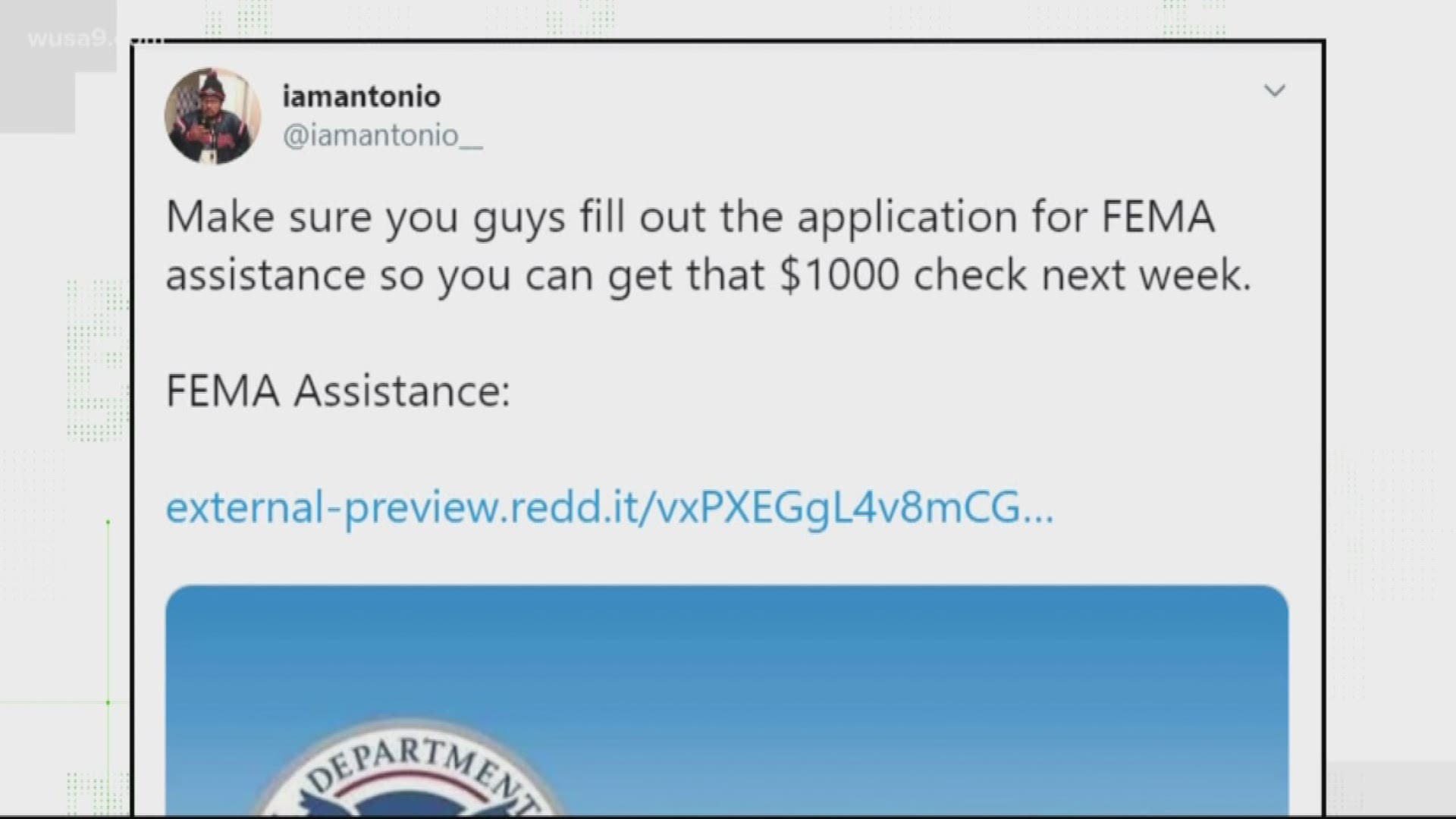WASHINGTON — Question:
Are online posts, advertising methods to collect $1,000 in government-sponsored coronavirus relief legit?
Answer:
No. Although U.S. lawmakers have made significant progress in a bill to distribute money to Americans, there is not yet a process to collect. Posts saying otherwise are possible scams.
Source:
Federal Emergency Management Agency
Department of Defense
Federal Trade Commission
Process:
A viral post has been spreading online, alleging to show a coronavirus scam. A Facebook user posted a warning, which has already been shared more than 549,000 times. He said that his wife received a message saying the following:
"$1,000 to help you pass (sic) the outbreak has been pre-accepted."
The message then offered a link to cash in on the offer.
The Verfy Team found a similar post on Twitter.
"Make sure you fill out the application for FEMA assistance," it read. "So you can get that 1,000-DOLLAR check next week.”
These posts may trick some readers, since U.S. lawmakers are in fact moving forward with a bill to compensate Americans.
As of Wednesday afternoon, the Senate agreed on a bipartisan deal, which would give most adults $1,200, plus an additional $500 for any children. If approved by the Senate, it would then need to head to the House for a final vote.
With all of this happening on Capitol Hilll, it's understandable that people may fall for scams. The Federal Emergency Management Agency warned of this scam on their "rumor control" webpage.
"Anyone who tells you they can get you the money now is a scammer," the agency wrote.
The Federal Trade Commission offered a similar message in regard to these fake posts.
"We predict that the scammers are gearing up to take advantage of this," they wrote.
The FTC offered a series of red flags to help people avoid these scams:
- The government is not going to ask for a fee to get that payout.
- The government is not going to ask for your social security number, bank account, or credit card number.
- If you see a scam, report it to www.ftc.gov/complaint
The details surrounding this cash payout continue to develop, and so the best approach is to wait for an official source, to outline how to receive your check.
RELATED: VERIFY: Fake Text messages impersonating banks, talking about government checks and how to spot them



